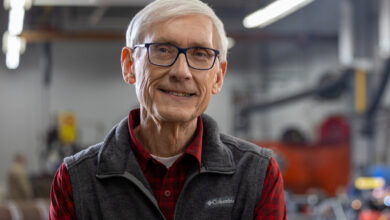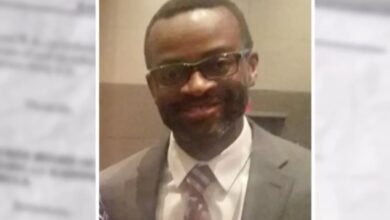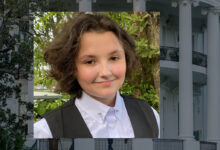
LGBTQ Athletes are Making History at the Winter Olympics
Early medalists Eric Radford, Adam Rippon are among a record 14 out participants in Pyeongchang.
Let’s face it. Gay athletes have probably been setting Olympic records since the days of the ancient Greeks.
But openly gay and lesbian athletes are another matter, especially in the Winter Olympics, which makes a couple of recent milestones all the more noteworthy.
First, Team USA’s Adam Rippon made history by becoming the first out gay man from the US to medal in a Winter Olympics by taking home the bronze for his free skate performance.
Then, Canadian Eric Radford became the first openly gay Winter Olympics champion after winning the gold with partner Meagan Duhamel in the pairs free skate performance.
The milestones come after NBC faced criticism for straight-washing its coverage of Opening Ceremonies by not identifying LGBTQ athletes in the same way it highlights athletes for their gender or ethnic backgrounds. Advocates say that recognizing LGBTQ athletes helps normalize their presence and inspire those who identify with them. They can encourage others to come out so that one day it won’t be such a big deal that they are participating in international sports events.
The significance of their victories was not lost on the athletes as they posed together for a photo with medals.
“So proud to be wearing these medals and showing the world what we can do!” Radford said in an Instagram post.
Several milestones
It was the latest win, so to speak, for Team LGBTQ. A record number of 14 out athletes are participating in this year’s Games, according to SB Nation’s Outsports.
That’s up from seven in the 2014 Winter Games, according to the site. And yet, it’s a far cry from the 2016 Summer Olympics, which boasted a record number of LGBTQ athletes, with at least 41 participating.
Outsports’ tally includes athletes who have at some point spoken publicly about their orientation. “We are aware there are other LGBT Winter Olympians who are out within their sport or team, but they have chosen not to discuss it publicly; these athletes are not on this list,” the outlet notes.
Another sign of progress for LGBTQ representation at the Olympics is the Canadian Olympic Committee’s Pride House, a safe space in the Olympic Village for LGBTQ athletes and their supporters. The first Pride House appeared in the 2010 Winter Olympics in Vancouver, but this one is the first to be affiliated with and hosted by a national Olympic committee. And it’s the first Pride House in Asia.
Mixing sports and politics
Rippon is one of two openly gay American athletes to represent team USA for the first time in the Winter Olympics, along with freestyle skiing’s Gus Kenworthy.
Initially, the pair did not shy away from mixing sports with politics.
In January, Rippon criticized the White House for tapping US Vice President Mike Pence to lead the official American delegation to the 2018 Winter Olympic opening ceremony, according to USA Today. After he made those comments, USA Today reported that Rippon declined a request to meet with Pence. The vice president’s office later said he never reached out to set up a conversation with Rippon.
After the opening ceremony, Kenworthy trolled Pence with a photo of him and Rippon with a caption that included, “Eat your heart out, Pence.”
On Tuesday, though, Rippon said he didn’t want the controversy to define his Olympics experience or distract from the games.
Why representation matters
Regardless, the skating star said he would keep using his platform to give his skating “a greater purpose.”
“I can’t tone it down. I’m being me and being myself,” Rippon said. “I’ve got so many messages from kids all over the country — I’m getting so emotional thinking about it — I think that’s why it’s so important.”
The number of openly gay athletes is still relatively small, and those who come out tend to do so after their first major competitions — for a variety of reasons.
Brian Boitano, the 1988 Olympic figure skating gold medalist, announced he was gay in 2013, after President Obama named him to the official US delegation to the 2014 Sochi Olympics. Two-time Olympic figure skater Johnny Weir, who competed in 2006 and 2010, did not officially come out until his 2011 autobiography. He said on Twitter in January that he did not view his sexuality as “something that needs addressing.”
In an interview before the Olympics, Kenworthy explained why coming out as a high profile figure was important to him.
“The reason that I wanted to come out in such a public way was, like, in the hopes of helping people that were struggling in the same position that I struggled with for most of my life, in the closet,” Kentworthy told Us Weekly.
“I have people constantly coming up to me and sending me messages saying how much my story has helped them come to terms with themselves,” he told the publication. “And for that reason, it’s just been the best decision that I’ve ever made.”











Comments